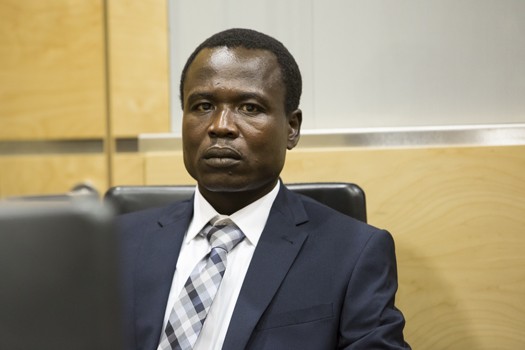By Sarah Kasande
The long-awaited parallel trials of Dominic Ongwen, a former child soldier turned senior commander of the Lord’s Resistance Army (LRA), at the International Criminal Court, and Thomas Kwoyelo, a former mid-level LRA commander, at the International Crimes Division of the High Court represent a step forward in efforts to provide acknowledgment and some form of justice for victims of mass violations committed during the brutal armed conflict in northern Uganda.
They will offer lessons on how national and international jurisdictions can complement each other to deliver justice to victims of mass atrocities.
In March, the ICC confirmed 70 charges of war crimes and crimes against humanity against Ongwen. This is the highest number of charges ever brought by the ICC against one individual.
They include 19 charges of sexual and gender-based crimes, including forced marriage. Ongwen’s trial in The Hague will be an important indicator of how cases involving former child soldiers will be handled in future by both international and domestic courts.
Kwoyelo’s trial, in a courtroom in Gulu, Northern Uganda, shows the critical role that national courts have always been required to play in the fight against impunity, with the ICC only stepping in as a court of ‘last resort” when states were either unwilling or unable to try alleged crimes themselves.
This is demonstrated in the story of how Ongwen and Kwoyelo ended up at two different courts.
Uganda referred the situation in the country to the ICC for investigation because it was unable to arrest LRA members who were mostly operating in Sudan at the time. In 2005, the ICC unsealed arrest warrants for Ongwen and four other LRA commanders.
In 2009, the Ugandan military captured Kwoyelo during an operation in the Democratic Republic of the Congo. Because he was not one of the LRA commanders indicted by the ICC, he was put on trial in Uganda.
But prosecuting serious crimes in domestic courts whenever possible has a number of potential benefits. First, it promotes respect for the rule of law in a country that suffered from mass violence, lawlessness, and instability. Second, the proximity of the trials to the sites of alleged attacks offers victims and affected communities the chance to follow, and possibly participate in, the proceedings.
Third, national trials should contribute to restoring civic trust in the government by demonstrating that the State is committed to protecting and enforcing the rights of individuals. Lastly, national trials may help deter others from committing similar crimes in the future, including senior leaders in government or the military.
The International Crimes Division (ICD) of the High Court of Uganda was established in 2008 to exercise jurisdiction over international crimes and offer justice to victims of the conflict. However, it has encountered numerous challenges that have prevented it from fulfilling its mandate.
The ICD’s first attempt to try Kwoyelo in July 2011 stalled after the Constitutional Court halted it on the grounds that Kwoyelo qualified for amnesty and his prosecution amounted to a violation of his right to equal treatment. In 2015, the Supreme Court overturned the decision, paving way for the trial to resume.
A year later, Kwoyelo’s trial has failed to take off due to delays in publishing the ICD’s new Rules of Procedure and the lack of adequate resources needed to hold the trial in Gulu.
Although closer to victims and the sites of alleged crimes, holding the trial in Gulu will require additional funds to meet the costs of transporting and maintaining three ICD judges, court staff and lawyers in Gulu for the duration of the trial. The ICD also requires resources to conduct outreach in the affected communities and set up appropriate protection and support measures for vulnerable victims and witnesses.
Kwoyelo’s trial will attract significant scrutiny of its compliance with international standards, jurisprudence, and any innovative practices it develops. It has the potential to offer important lessons to other states contemplating the prosecution of serious crimes in their national courts and to demonstrate the ability of African states to carry out national proceedings in their own courts.
But public trust in the national judicial system will not be restored if, going forward, prosecutions are one-sided or turn a blind eye to atrocities allegedly committed by state actors.
The prosecution of a handful of perpetrators cannot be regarded as adequate justice for the thousands of victims of the mass crimes committed during the conflict. Nevertheless, these trials represent important steps towards achieving accountability for the terrible crimes committed in northern Uganda.
*This article was originally published in The Daily Monitor*
Photo: Dominic Ongwen appears before the ICC (ICC)
